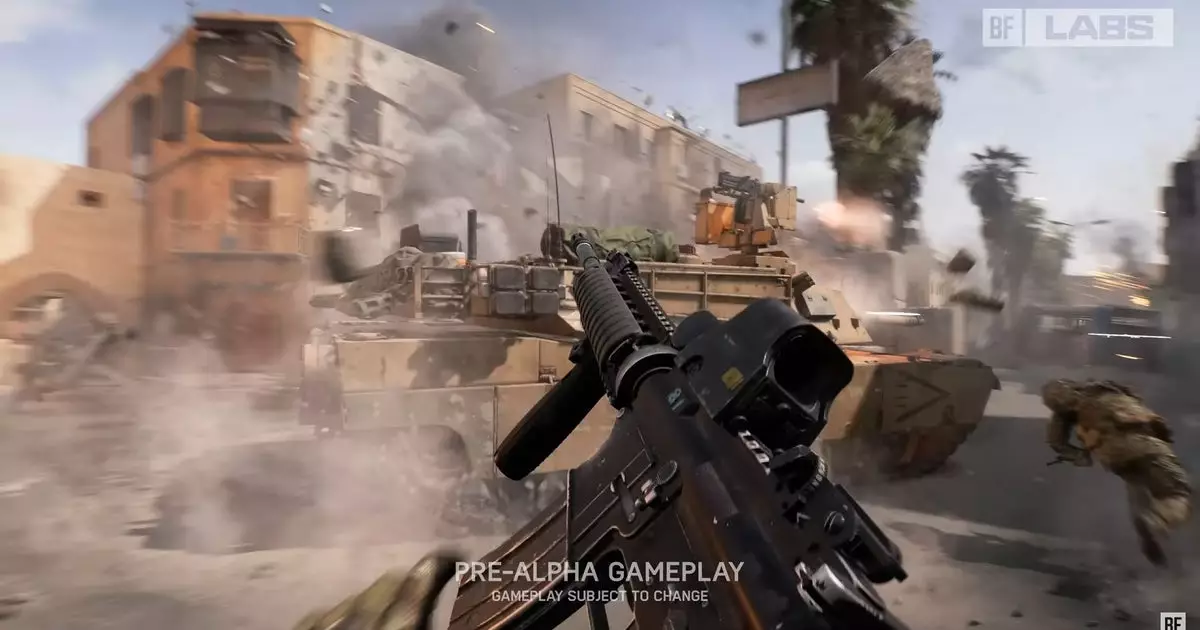The gaming world is abuzz with excitement for the next installment of the Battlefield franchise. As EA gears up for the anticipated release, the promotional video provides a glimpse into what players can expect from this large-scale first-person shooter. The trailer features explosive visuals—buildings crumbling, gunfire echoing, and the familiar chaos that players have come to love. However, beneath the layers of hype and visual spectacle lies an intriguing narrative about the corporate dynamics involved in crafting a blockbuster game.
At the heart of the promotional video is a chorus of producers boasting about “leveling up” the “core experience.” While these phrases sound promising, one must question what substantive changes they entail. The focus on demolition through rocket-propelled grenades, a staple mechanic in the Battlefield series, raises a critical question: is this mere marketing jargon or indicative of genuine innovation? The snippets shown in the trailer—which predominantly featured combat sequences, debris, and vehicular chaos—suggest that the essence of Battlefield remains unchanged, leading some dedicated fans to think the franchise may be in a creative rut.
A notable highlight from the promotional video is the introduction of “Battlefield Labs,” a program that invites public participation in beta testing. This initiative marks a shift towards more community-driven game development, allowing fans to interact with the game before its full release. However, upon closer inspection, this approach may appear superficial. The process of signing an NDA and playtesting raises eyebrows, as it mirrors practices commonly associated with large corporations seeking quick feedback rather than fostering a collaborative environment. Players might wonder whether their insights will genuinely influence the final product or merely serve as a vessel for quality assurance.
The involvement of multiple studios—DICE, Criterion, Motive, and Ripple Effect—offers a façade of collaborative synergy. Yet, the reality is layered with complexities; Criterion’s work on Battlefield has delayed its own upcoming project. This serves as a reminder of the trade-offs studios face and raises questions about the project’s overall coherence. The video notably omits any mention of Ridgeline Games, a studio initially engaged in the project, which has subsequently closed. This absence indicates a potential instability in the development process, which can hinder the creative vision.
As the release of Battlefield 6 approaches, it presents a mixed bag of anticipation and uncertainty. Gamers are eager to dive back into the franchise’s familiar chaos, but there are underlying concerns regarding innovation, community involvement, and corporate strategy. While the promotional material strikes an impressive visual note, the substance behind it reveals a narrative of corporate decisions that might overshadow the game’s design and vision. Thus, as this new chapter of the Battlefield saga unfolds, players are left to ponder: will the game truly evolve, or will it succumb to the inner workings of a corporate machine?

